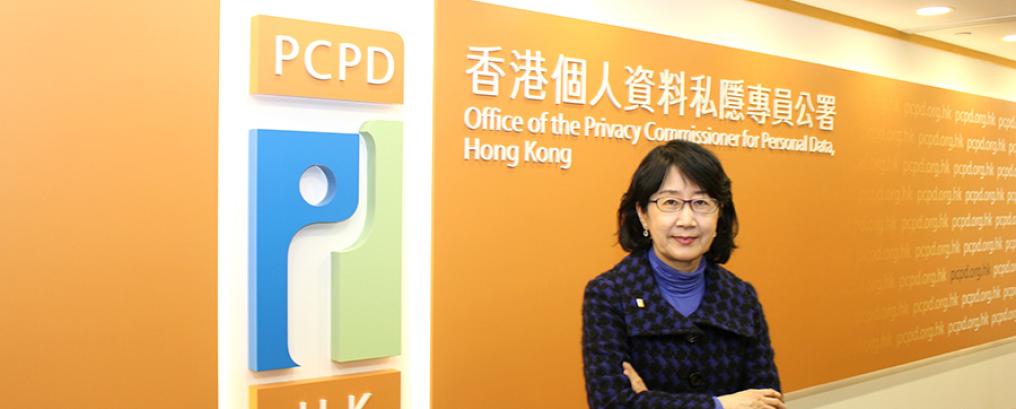Ahead of a proposed name change for The Hong Kong Institute of Chartered Secretaries (the Institute), CSj takes a look at the evolution of the company secretarial role and what the future might hold for members of the governance profession in Hong Kong.
Later this year, Chartered Secretaries and Chartered Governance Professionals in Hong Kong will vote on a proposal to adopt a new name for their professional Institute. The proposed new name – The Hong Kong Chartered Governance Institute (香港公司治理公會) – seeks to put an official seal on a transition that has occurred in the role of the company secretary into the wider governance profession to which they belong. Ahead of the vote, scheduled for a general meeting to be held in July, CSj takes a look at that transition and at the future roles of Chartered Secretaries and Chartered Governance Professionals in Hong Kong.
A little history
In 1891, a group of 18 company secretaries got together in the UK to form The Institute of Secretaries of Joint Stock Companies (the Institute of Secretaries). At that time, the company secretary was still largely seen as an administrative officer. In a UK court case only four years earlier, the company secretary was described by a presiding judge as a ‘mere servant’ and only in a position ‘to do what he is told’.
Even back then, that description was not entirely accurate. The role did include an advisory function, keeping directors up to date on compliance matters, but nevertheless company secretaries were primarily seen as back-office staff – mainly responsible for preparing the agenda and minutes of board meetings, arranging general meetings, and managing the company’s statutory registers and filings.
In the subsequent 130 years, the importance of good governance has gained increasing recognition and, unsurprisingly, the importance of the role played by all parties engaged in maintaining good governance standards in organisations has followed a similar trend. Good governance is a collective effort. Directors have the primary responsibility for ensuring good governance but they are assisted in this task by company secretaries and a wider grouping of governance professionals, including practitioners from a wide range of different backgrounds, such as accountants, lawyers, risk managers, compliance officers, legal counsels and managers.
The profession has thus expanded to become the home both for Chartered Secretaries and Chartered Governance Professionals, and that group of 18 company secretaries who formed the Institute of Secretaries in the UK has grown to become a community of some 29,000 members living and working in over 80 countries under the banner of the global qualifying body for governance professionals – The Chartered Governance Institute (CGI).
The view from Hong Kong
A similar trajectory is seen in the evolution of the Institute (CGI’s China Division) in Hong Kong and the Mainland. It started life as an informal grouping of 20 company secretaries back in 1949. In 1986 it became an official branch (or ‘Association’) of The Institute of Chartered Secretaries and Administrators (ICSA) – the successor to the Institute of Secretaries mentioned above. It gained local status as The Hong Kong Institute of Company Secretaries Ltd in 1994 and was renamed The Hong Kong Institute of Chartered Secretaries in 2005.
Today, the Institute is a local autonomous professional body with over 6,000 members and 3,200 students. The key driver of its growth in membership and standing is the same as described above in the global context – the increasing recognition of the importance of good governance and the growing demand for professionals able to manage the increasingly complex governance expectations organisations operate under.
Company secretaries were always ideally placed to take on a leading role in governance. The core functions of the traditional company secretary role are diverse, but are focused chiefly on ensuring regulatory compliance, good governance practices and facilitating effective decision-making by the board. Moreover, company secretaries have always had a seat on the board – both in the role of minute-taker and trusted adviser to the board in matters relating to regulatory compliance and governance.
How does this square with the description of the company secretary mentioned above in the 1887 court case (Barnett, Hoares & Co v South London Tramways Co) in the UK? Things have clearly moved on over the last century, but perceptions of the role are in some quarters still subject to the same assumptions that persuaded Justice Lord Esher to describe the company secretary as a ‘mere servant’ whose function was to follow orders. The role defies typecasting. The company secretary is both a company employee and an independent gatekeeper. Along with the CEO and chairman, the company secretary is part of the ‘triumvirate at the top’ of listed companies – tasked with overseeing the governance agenda of the organisation, while at the same time being responsible for housekeeping tasks such as organising the room bookings for board and shareholder meetings.
There are, however, significant advantages to this arrangement. There are benefits to having an independent gatekeeper who is familiar with company operations, and with board personalities and culture. Also, good governance is just as much about the minutiae of how boards meet and make decisions, and the effectiveness of internal controls and regulatory compliance arrangements, as it is about high-level governance principles.
Repositioning the profession
Over the last decade, the Institute in Hong Kong and the Mainland, together with CGI, has been implementing a repositioning exercise which seeks to improve the understanding of the company secretary’s role and its place in the wider governance profession. This exercise has already passed several significant milestones. These include the launch in 2019 of the dual Chartered Secretary and Chartered Governance Professional (CS/CGP) qualification, and the launch in 2020 of an updated qualifying programme for students in Hong Kong and the Mainland – the Chartered Governance Qualifying Programme (CGQP).
The proposed name change of the Institute is intended to put an official seal on these developments. The misperceptions of the company secretarial role have not been helped by the associations of the term ‘secretary’. This term has an august history that goes back to the Latin term secretarius. Some of the highest offices in organisations globally take this title – the General Secretary of the United Nations for one. Nevertheless, in common parlance, the term is usually understood to refer to a personal assistant who sits in front of the boss’s door and types, keeps appointments and makes coffee.
Edith Shih FCG(CS, CGP) FCS(CS, CGP)(PE), CGI Immediate Past International President and Institute Past President has long been a pioneer and strong advocate of giving governance a more prominent place in the training and the identity of the profession. She points out that the Institute’s repositioning initiatives over the last decade have only been designed to better represent what practitioners have been doing for some time.
‘I believe wholeheartedly that governance is the overarching remit of our profession,’ she said in an article published in the April 2020 edition of CSj. ‘Underneath that big umbrella there will be people concentrating on the more administrative side of the company secretarial role and there will also be people, especially our more senior members, who will be involved in the compliance and governance advisory functions. Both these aspects are part of governance one way or the other, so identifying ourselves as governance professionals gives us a title that represents what we’re doing and helps people understand our role better. I am sure that this is the way to go in the years to come.’
The dual CS/CGP qualification is already well established. All Institute members have now successfully transitioned to the new designation and are eligible for the new post-nominals for Fellows (FCG FCS) and Associates (ACG ACS). Moreover, the CGQP, together with the Institute’s continuing professional development (CPD) training services, now give more focus to elements relating to governance, board dynamics and risk management to better prepare students and members for their expanded roles as governance professionals.
The next logical step is to update the name of the Institute itself. Most other international divisions of CGI have already gone down this route. Australia led the charge back in 2013 when it became the Governance Institute of Australia. Subsequently, all other CGI international Divisions (with the exception of Singapore and Zimbabwe), have changed their names to become governance institutes. This process culminated in CGI’s name change in 2019.
Hong Kong’s plans for a name change got underway in 2016 when the Institute set up a working group to explore the options. In 2019, HKICS Council endorsed the new name proposed by the working group – The Hong Kong Chartered Governance Institute (香港公司治理公會). The Institute planned to hold a series of members’ forums on this back in 2019, but these plans were delayed due to the social unrest of 2019 and the outbreak of Covid-19 in 2020. Nevertheless, focus group forums and meetings with regulators were held and the feedback received was very positive.
This year, the Institute has held a number of member and student forums to broaden understanding of the proposed change and to listen to the views of students and members on this issue. The feedback so far indicates that there is good recognition in the profession of the value of a name that better reflects the work of governance professionals and their status in the organisations they work for.
What will the future hold?
The future prospects of CS/CGPs in Hong Kong, the Mainland and the region look promising. There can be no doubt about the growing demand for qualified CS/CGPs – employers recognise the value of having a properly qualified CS/CGP to improve board effectiveness and oversee the broader governance agendas of their organisations.
The governance gatekeeping role of CS/CGPs is also welcomed by regulators – this role is already hardwired into Hong Kong’s legislative and regulatory framework. The Companies Ordinance requires every company to have a company secretary and the Corporate Governance Code (the Code) is explicit about the company secretary’s governance functions. In particular, Section F of the Code, Appendix 14 of the Listing Rules, states that the company secretary is responsible for, among other things:
- ensuring good information flow within the board
- advising the board on governance matters, and
- facilitating induction and directors’ professional development.
Section F also states that all directors should have access to the advice and services of the company secretary to ensure that board procedures and all applicable laws, rules and regulations are followed. It also states that the company secretary should report to the board chairman and/or the chief executive.
That said, there remains a lot of work for the profession to do. There are significant differences in the extent to which different organisations understand the CS/CGP role and the benefits it brings. The direction of travel, however, is clear. Company secretaries and governance professionals today have greater confidence to fulfill their gatekeeper role, and stakeholders of the profession have a better understanding of the core value they bring to the organisations they work for – excellence in governance.
[/et_pb_text][/et_pb_column][/et_pb_row][/et_pb_section]


